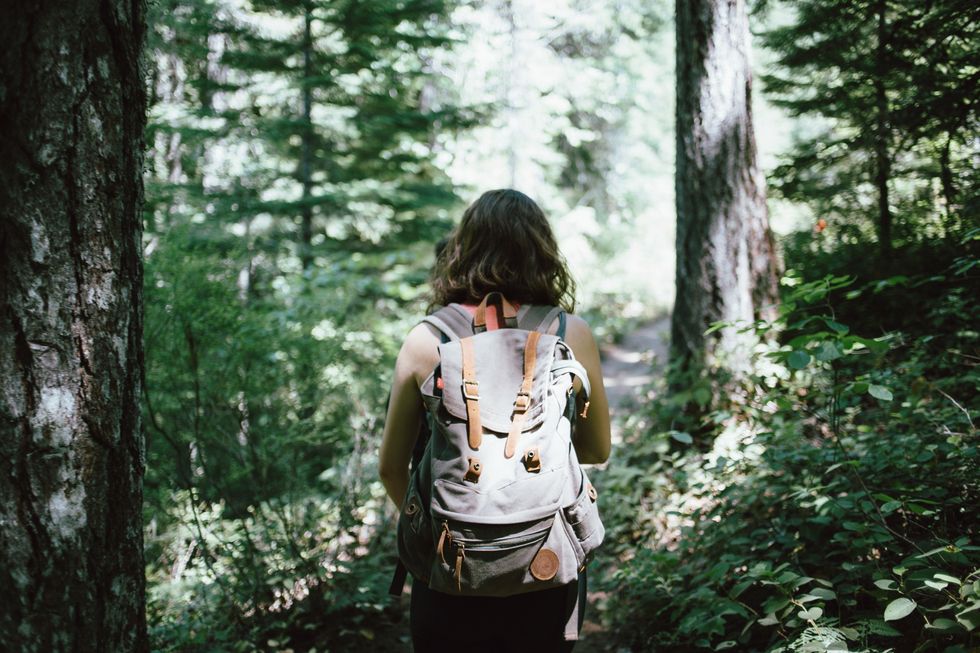My mother and I were the last people; because of this, she felt it necessary that we remember everything no one else could. So we lived as vagrants, stopping only to eat and read the writings she found. Some were thick books, the oldest bound in leather, the newest in worn cardboard. Others were just tattered pieces of paper in clear casings. She’d make me sit in our makeshift shelters, reading them. And afterward, I would have to explain to her what they entailed; listing of facts about wars, medicine, cultures, and even specific people. As a child, I despised it.
I didn’t tell her that- she was all I had and I didn’t want to upset her. But the pages bored me, and my hatred for the words festered- especially for the one book she carried, which we read anytime we were out of new material. It was entitled; "The History of Us."
One day, when she’d gone to get food, and left me to read that book. As I flipped the page, the corner ripped. I stared at the small tare- it was almost hypnotic. Slowly, I tore it further, until the corner came off in my hand. I tore the page off than another, and another, until the entire book was spread out around me in crinkled pages, and the only thing left in my lap was the stained binding.
I looked up, my mother was standing, clutching apples. “I don’t want to read!” I screamed. She said nothing, just handed me an apple, before gathering the torn pages of the book.
It was three days until she spoke to me again. All she said was
“Read this,” before putting a book in my lap.
“When your father was alive, he showed me the book you ripped up. He told me that it was our job to remember. And now you have to read them, so you can remember too.”
I felt a pang of guilt- before my mother and I were the last people, my father and her were. But I was a stubborn child, too stubborn to show remorse. “Remember what?” I asked, belligerently.
“Us,” she said
I furrowed my brow. “What do these books have to do with us?”
“Us doesn’t mean you and me,” she said. “Us is all those people who came before- we have to keep their history alive because we’re the only ones who can now.”
I opened the book she’d handed me, reading the first sentence out loud “The creation of the Ottoman empire.”
My mother’s words stuck with me- they made me feel important- like the people I read of in the books. Suddenly, when I read the old texts, it was blithe. History went from being a tedious task to a film I could play within my mind; from the earliest, stone-wielding societies; to the child from Nazareth who would shape the world; to the great wars that left the world floundering; to the rise and fall of that last generation; and everything in between. It was everything to me.
Just like it was to my mother. I finally understood her, why she kept moving us. I never complained after that.
Years after, I found passion in history. My mother and I were walking amidst the rust-encrusted skeletons of old automobiles during a break from the library. The effects of age had become known to me; gray hairs along my scalp, and indentations near my eyes. But for my mother, they were far worse. Her hips arched, her fingers curled towards her palms, and she often lost her breathe within a few steps. I’d stopped to pluck an apple from a tree, my eyes away from her only momentarily- when I turned back I dropped it the ground, and bolted across the uneven pavement, to where my mother lay.
Her face was to the road- I flipped her over, revealing a trace of blood on her face, and distant eyes. They looked around for a while, before finally settling on me. Her mouth opened as if to speak, but remained agape rather than forming any words. After a few moments, her body went limp, and I knew she was gone, that she was no longer a person; she was history, like the books, like everything I had ever known. She was history and for the first time, I was truly alone.
For the first time, there was only one person to remember- and when that person died, when I died, humanity would die as well. Gone with that last breath.






 The minimum wage is not a living wage.
StableDiffusion
The minimum wage is not a living wage.
StableDiffusion
 influential nations
StableDiffusion
influential nations
StableDiffusion











